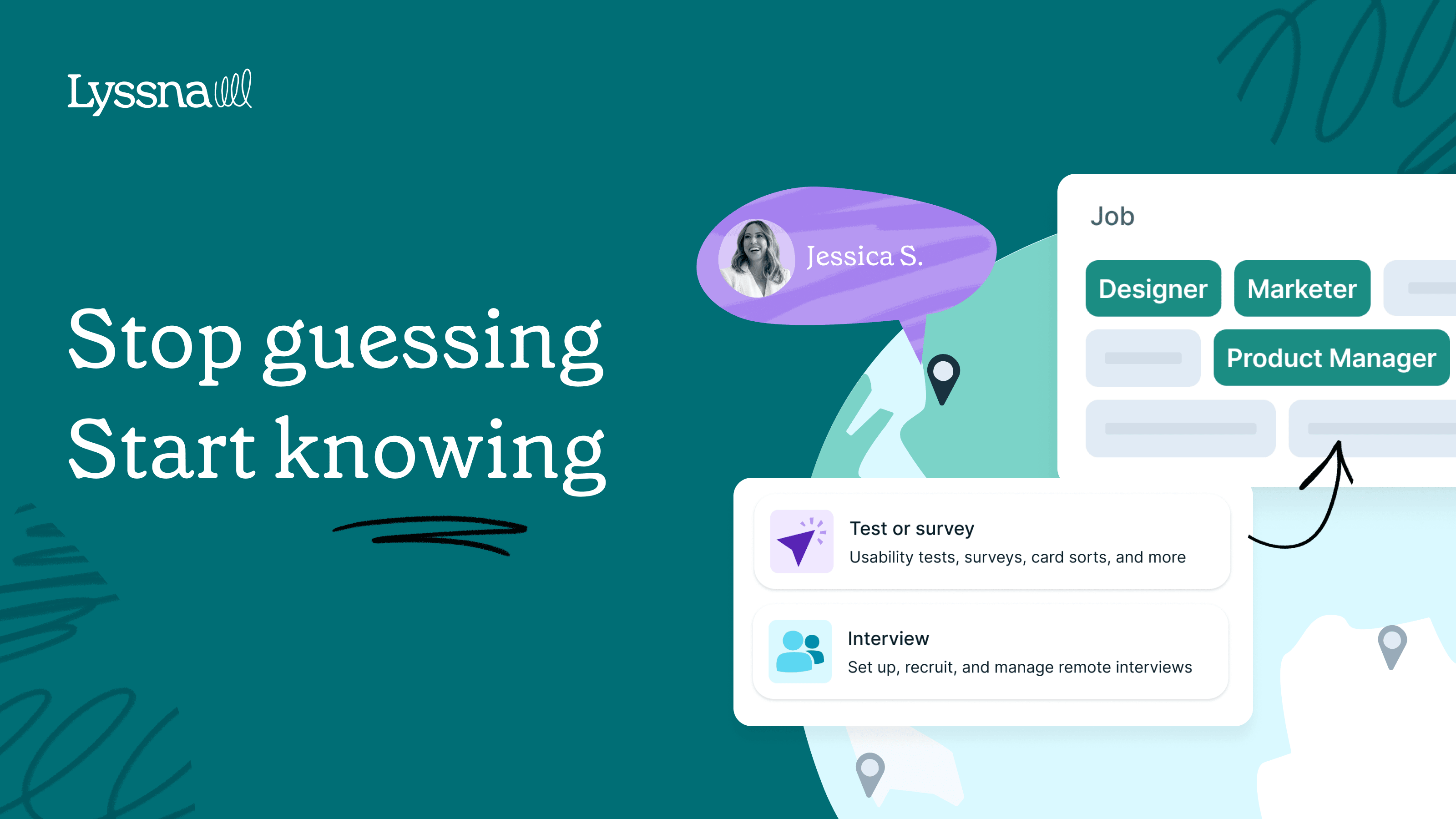Read time: under 5 minutes
|
A big thank you to Lyssna, our sponsor, who keeps this newsletter free to the reader:

USER RESEARCH PLATFORM
Get Fast User Feedback with Lyssna
Lyssna connects you with target users quickly to conduct interviews, test concepts, and validate designs. Get feedback to create products users love.
|
|
|
|
A skill you need in work and life
💭 Picture this:
I’m sitting in a coffee shop, staring at my laptop. The brief I’ve been working on doesn’t just need edits—it needs a funeral.
The creative direction came straight from my boss, someone who prides themselves on “vision.”
But this vision? It’s a mess. No strategy, no alignment, and if we go live with it, the brand will take the hit.
I can feel my chest tighten because I know what’s next: I’ll have to walk into their office and say, “This isn’t working.”
I hate that feeling—the knot in my stomach, the mental gymnastics to justify keeping quiet. I could just hit “send,” let it flop, and watch the fallout from a safe distance.
But I won’t.
Because I know the pain of that one uncomfortable conversation now is nothing compared to the disaster waiting down the road.
Why uncomfortable conversations are so hard (but necessary)
Confronting someone—whether it’s your boss, your partner, or your mom—feels like stepping onto a battlefield armed with a spoon.
You’re vulnerable, exposed, and terrified of what might happen. Will they lash out? Will they cry? Will they dismiss you entirely?
But here’s the thing: avoiding these conversations doesn’t save you.
It robs you. It keeps you stuck in a loop where resentment festers, bad decisions spiral, and relationships strain under the weight of unspoken truths.
Imagine firing someone who isn’t performing. It’s brutal. But not firing them means the team suffers, resentment builds, and your leadership takes a hit.
Or telling your partner they’re doing something that bothers you—like interrupting you mid-sentence. Awkward, yes. But burying it? That’s a fast track to resentment town.
Even harder? Setting boundaries with toxic family members. The guilt, the pushback—it’s a lot.
But what’s worse: a few uncomfortable conversations or a lifetime of letting someone steamroll your peace?
How to get better at uncomfortable conversations
✅ Start small, but start
Practice with low-stakes situations.
- Send back that wrong coffee order.
- Politely tell your friend you’d prefer a different movie.
These small wins build your confidence for the big ones.
✅ Get to the point
No fluff, no long intros.
Say what you mean early: “I need to talk to you about X.”
Clarity minimises confusion and sets the tone.
✅ Stay calm, not combative
Breathe. Keep your voice steady.
Frame the issue as a shared problem, not a personal attack: “I want to make sure we’re aligned on this because I think it could be stronger.”
✅ Listen without interrupting
Even if they push back, let them talk.
Sometimes just letting the other person feel heard defuses the tension.
✅ Rehearse and then jump
Write down what you want to say. Practice it.
But don’t rehearse endlessly; there’s no “perfect” moment.
Jump in and trust yourself.
5 reasons you shouldn’t avoid hard conversations
1) Avoidance builds resentment
When you stay silent, unresolved issues fester.
What starts as a small annoyance can grow into full-blown resentment, damaging relationships and trust over time.
2) Problems don’t fix themselves
Ignoring a problem doesn’t make it disappear—it gives it space to worsen.
A bad idea at work can snowball into a failed project; unspoken boundaries in personal relationships can turn into toxic dynamics.
3) It’s a confidence killer
Avoiding tough conversations reinforces the belief that you can’t handle conflict.
Facing them head-on, even imperfectly, builds confidence and emotional resilience.
4) You lose control over outcomes
Staying silent means letting others make decisions for you.
Speaking up gives you a chance to shape the narrative and work toward a better solution.
5) Respect comes from honesty
People may not like what you have to say, but they’ll respect your courage to say it.
Honesty fosters stronger, more authentic relationships, even if it’s uncomfortable in the moment.
Final Thoughts
Uncomfortable conversations aren’t just about fixing the issue at hand.
They teach you how to communicate with honesty and respect. They help you build boundaries, strengthen relationships, and earn trust. Over time, they don’t feel so scared anymore—they feel empowered.
The next time you feel that knot in your stomach, don’t see it as a warning to back off. See it as a sign you’re stepping up.
The only way to get better at uncomfortable conversations is to have them; messy, imperfect, and honest.
Start small, speak up, and watch how much lighter your world feels when you stop carrying what’s unsaid.
|
Whenever you’re ready, there are 3 types of designers I help:
1. Entry-level designer? Transition into UX by crafting an unforgettable portfolio
2. Mid-level designer? Step up and become a design leader
3. Senior, Lead, or Manager? — Start your journey as a designpreneur
So, what do you think?
Liking the new shorter format?
I'll keep writing if you keep reading. I read every reply if you care to reply 😇. You might get an answer back.
Forward this to a friend who might enjoy this. Hopefully it helps out a fellow designer.
If you're not subscribed, you can sign up here.
That's it for today. Speak soon 💛
|